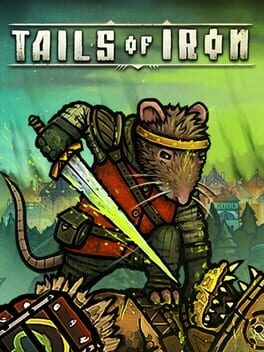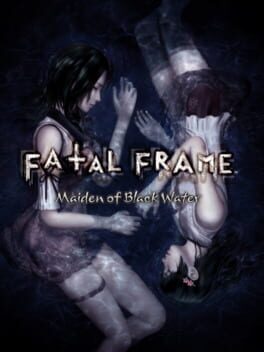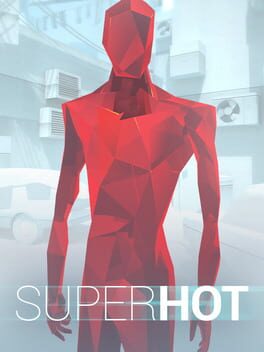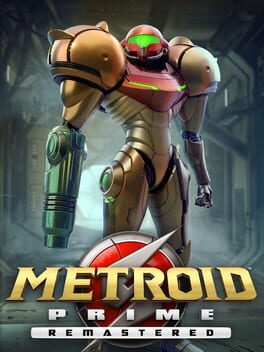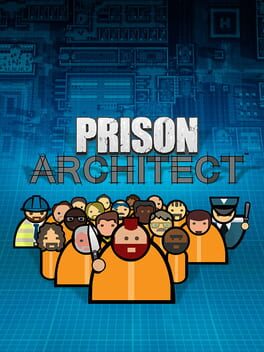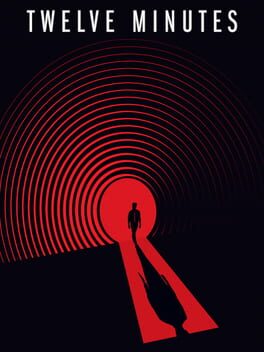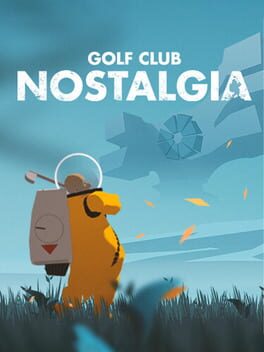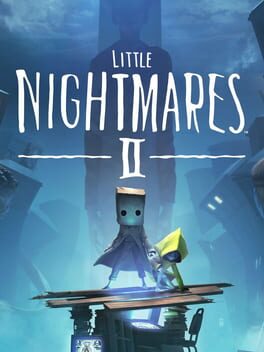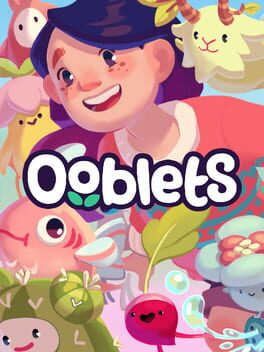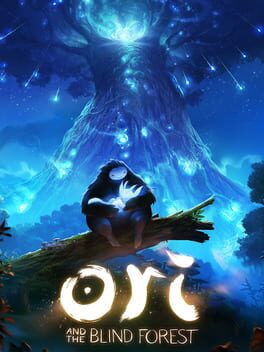Gameovah
2021
4/10
The game boringly re-enacts many Middle Ages tropes (especially the civilized world vs barbarian tribes one) and depicts a grim, brutal, and feral archetypal past mostly made of revenge, suffering, and loss - a quite common reverse-fairytale in which everything is forcefully violent and bad. In case you are a fan of these worlds this would even work for the short duration of the game (less than 10 hours) if narrative-wise the game wouldn't be so flat and devoid of memorable moments. After a brief intro, it feels painfully redundant and basically re-enacts the same procedures over and over. Rebuilding a kingdom has rarely been more tedious, and a good (although derivative) atmosphere has rarely become so rapidly tedious.
The game boringly re-enacts many Middle Ages tropes (especially the civilized world vs barbarian tribes one) and depicts a grim, brutal, and feral archetypal past mostly made of revenge, suffering, and loss - a quite common reverse-fairytale in which everything is forcefully violent and bad. In case you are a fan of these worlds this would even work for the short duration of the game (less than 10 hours) if narrative-wise the game wouldn't be so flat and devoid of memorable moments. After a brief intro, it feels painfully redundant and basically re-enacts the same procedures over and over. Rebuilding a kingdom has rarely been more tedious, and a good (although derivative) atmosphere has rarely become so rapidly tedious.
6/10.
I didn't enjoy the first one (except for its philosophical overtones), and couldn't proceed with the second one due to how grossly it sexualized female characters and bodies and to how frustratingly it introduced gacha mechanics. Where the first sounded like a thesis - establishing the fundamentals of the whole series - and the second as an antithesis (by introducing dumb mechanics and horrible character design), this is kinda a synthesis between the two (intentional Hegelian lexicon here).
To begin with, let me be structuralist for once: many elements here are brilliant. On the one hand, the soundtrack is amazing, the directing style of main cutscenes is great, the plot is deep and captivating. By the way, the game is everything but perfect: the world and character design is still weak imho, and the gameplay loop is dramatically traditional (main, secondary, and extra quests are painfully reduntant and repetitive, you cannot complete the game without becoming a man-machine, objectified and machinized as Marx foresaw). Additionally, the plot reaches its peak around chapter 5/6 and the game proves to be overlong and diluted as its predecessors - with chapter 7 being immensely boring and cheap - basically a corridor filled with identic enemies and bosses.
Unlike the first game, XC3 evidently takes an existential route. As in many other Japanese fictional worlds and JRPGs, characters strive to escape the facticity (quoting our beloved Heidegger & Sartre) of their existence and strive to achieve existential freedom. The former is depicted as a temporal stasis and a never-ending fight between two armies of children, the latter as freedom of choice and self-determination (Foucault wouldn't agree with this). In addition, facticity and war are pre-determined by evil deities who play with human beings, another common trope across JRPGs and Japanese mainstream fiction in general.
If the struggle between facticity and freedom is quite didactic and uninteresting, the game manages to translate it into pretty interesting game mechanics. The only way to achieve freedom is by overcoming differences, finding oneself in the (and as an) other (Ricoeur), and challenging one's own identity with the aim of overcoming it. In the beginning, this takes the basic form of fighting alongside former enemies: after the very first hours, the party members become quite a lot (6-7 members fighting at the same time) with former enemies forced to fight together. Later, it takes the form of familiarizing with enemies, to the point you lose yourself within them and vice versa: every character has a unique class but soon you can freely switch their classes, techniques, and abilities - as a consequence, characters continuously change their clothing and dress as others. Weapons, abilities, and clothing, as identity traits, become interchangeable: characters' memories merge, their experiences melt, their feelings intertwine, and their iconic appearance becomes fluid. They can also perform ‘syntheses’, which means they merge in a single being highly echoing Neon Genesis Evangelion. The mechanics of the game, in this sense, are among the most meaningful I’ve ever seen in a JRPG: unlike in most other games of the genre, you don’t just brainlessly slaughter almost-innocent creatures or manga/anime-like villains. I mean, you still do that from beginning to end (and that’s painful as usual) but at least there’s something these mechanics are telling and proving you as you do that. Fights are also so chaotic, dynamic, and imbued with colors, effects, and data, that they resemble dances and senseless choreographies, with the characters that constantly use others’ identity traits and moves or merge with others – so fun to watch, so fun to play, so meaningfully hinting at a melting pot of identities.
Spoilers ahead.
As said, the game kinda loses its momentum as it progresses. It becomes one of those redundant JRPGs built upon slogans (“the future!!!”) and deserted monocursal labyrints. Overall, I’ve enjoyed it nonetheless, and yet I cannot but acknowledge its limitations and issues. It’s a pseudo-philosophical, ultra-pop pastiche imbued with cliches and tropes, and yet it manages to be even moving at times.
On a side note, it’s also full of explicit references: for example, we fight deities to break a looping time made of death and resurrections as in Final Fantasy X; group attacks are vaguely comic-like as in Persona 5; and we witness a promise made by two lovers as their respective worlds drift as in Kingdom Hearts – the final scene is almost a remake of KH’s ending, and yet it’s one of the most moving moments of all XC3.
As in KH, moreover, there are heroes who face their dopplegangers/future-selves/virtual-versions, in a costant struggle between hope&friendship vs nihilism&loneliness. Which here is quite good I must say.
I didn't enjoy the first one (except for its philosophical overtones), and couldn't proceed with the second one due to how grossly it sexualized female characters and bodies and to how frustratingly it introduced gacha mechanics. Where the first sounded like a thesis - establishing the fundamentals of the whole series - and the second as an antithesis (by introducing dumb mechanics and horrible character design), this is kinda a synthesis between the two (intentional Hegelian lexicon here).
To begin with, let me be structuralist for once: many elements here are brilliant. On the one hand, the soundtrack is amazing, the directing style of main cutscenes is great, the plot is deep and captivating. By the way, the game is everything but perfect: the world and character design is still weak imho, and the gameplay loop is dramatically traditional (main, secondary, and extra quests are painfully reduntant and repetitive, you cannot complete the game without becoming a man-machine, objectified and machinized as Marx foresaw). Additionally, the plot reaches its peak around chapter 5/6 and the game proves to be overlong and diluted as its predecessors - with chapter 7 being immensely boring and cheap - basically a corridor filled with identic enemies and bosses.
Unlike the first game, XC3 evidently takes an existential route. As in many other Japanese fictional worlds and JRPGs, characters strive to escape the facticity (quoting our beloved Heidegger & Sartre) of their existence and strive to achieve existential freedom. The former is depicted as a temporal stasis and a never-ending fight between two armies of children, the latter as freedom of choice and self-determination (Foucault wouldn't agree with this). In addition, facticity and war are pre-determined by evil deities who play with human beings, another common trope across JRPGs and Japanese mainstream fiction in general.
If the struggle between facticity and freedom is quite didactic and uninteresting, the game manages to translate it into pretty interesting game mechanics. The only way to achieve freedom is by overcoming differences, finding oneself in the (and as an) other (Ricoeur), and challenging one's own identity with the aim of overcoming it. In the beginning, this takes the basic form of fighting alongside former enemies: after the very first hours, the party members become quite a lot (6-7 members fighting at the same time) with former enemies forced to fight together. Later, it takes the form of familiarizing with enemies, to the point you lose yourself within them and vice versa: every character has a unique class but soon you can freely switch their classes, techniques, and abilities - as a consequence, characters continuously change their clothing and dress as others. Weapons, abilities, and clothing, as identity traits, become interchangeable: characters' memories merge, their experiences melt, their feelings intertwine, and their iconic appearance becomes fluid. They can also perform ‘syntheses’, which means they merge in a single being highly echoing Neon Genesis Evangelion. The mechanics of the game, in this sense, are among the most meaningful I’ve ever seen in a JRPG: unlike in most other games of the genre, you don’t just brainlessly slaughter almost-innocent creatures or manga/anime-like villains. I mean, you still do that from beginning to end (and that’s painful as usual) but at least there’s something these mechanics are telling and proving you as you do that. Fights are also so chaotic, dynamic, and imbued with colors, effects, and data, that they resemble dances and senseless choreographies, with the characters that constantly use others’ identity traits and moves or merge with others – so fun to watch, so fun to play, so meaningfully hinting at a melting pot of identities.
Spoilers ahead.
As said, the game kinda loses its momentum as it progresses. It becomes one of those redundant JRPGs built upon slogans (“the future!!!”) and deserted monocursal labyrints. Overall, I’ve enjoyed it nonetheless, and yet I cannot but acknowledge its limitations and issues. It’s a pseudo-philosophical, ultra-pop pastiche imbued with cliches and tropes, and yet it manages to be even moving at times.
On a side note, it’s also full of explicit references: for example, we fight deities to break a looping time made of death and resurrections as in Final Fantasy X; group attacks are vaguely comic-like as in Persona 5; and we witness a promise made by two lovers as their respective worlds drift as in Kingdom Hearts – the final scene is almost a remake of KH’s ending, and yet it’s one of the most moving moments of all XC3.
As in KH, moreover, there are heroes who face their dopplegangers/future-selves/virtual-versions, in a costant struggle between hope&friendship vs nihilism&loneliness. Which here is quite good I must say.
After having liked the first episode of the series, enjoyed the second one, and endured the third, I had very low expectations of this. And yet it has been way worse than I expected.
Except for the lore, the game is so (both narratively and interactively) clunky, so obtuse in the aesthetics, so kitsch and machinic in its mechanics, so anticlimatic and poor in its atmospheres, so lazy in its nth borrowingn of j-horror... I almost can't think of a single good thing about it. Which is quite sad for a golden-age-survival-horror-lover like me.
Except for the lore, the game is so (both narratively and interactively) clunky, so obtuse in the aesthetics, so kitsch and machinic in its mechanics, so anticlimatic and poor in its atmospheres, so lazy in its nth borrowingn of j-horror... I almost can't think of a single good thing about it. Which is quite sad for a golden-age-survival-horror-lover like me.
2016
This review contains spoilers
Not so original as a cyberpunk metagame but nonetheless quite good: the best part is the final sequence, spoiler? in which you play as a techno-mind, digitally embodied, and controlled by technology against your actual body.
The fact is that as too many other games it is filled with seemingly-useless and just-for-fun gameplay, which makes no sense at all here especially considering the game's themes and meaning. So yep, quite fun, but what about designing a meaningful gameplay? Even pure chaos and violence would work here... and instead nope: let's make a puzzle/shooter where time freezes every time you stop. Why :[
The fact is that as too many other games it is filled with seemingly-useless and just-for-fun gameplay, which makes no sense at all here especially considering the game's themes and meaning. So yep, quite fun, but what about designing a meaningful gameplay? Even pure chaos and violence would work here... and instead nope: let's make a puzzle/shooter where time freezes every time you stop. Why :[
2015
2022
It's a sweet, low-paced, reflexive, and significantly subversive game based on a child spending three days in a hospital to help her mother (a nurse). Basically you just wander around, speak with patients, take notes on your journal. Time marches on, three days are quite short, and people mind their own business (meaning that they have their own schedules, dialogues, actions, and experiences even if you're not there - as in Deadly Premonition, but way more impactful). You follow them, spy them, speak with them as a bored child would do. You dream about becoming a journalist and solving some mysteries within the hospital, and there's a mysterious VIP who's supposed to visit someone soon. Eventually, it turns out there's nothing to solve, no VIP visiting, anything at all. The game subverts many gaming clichés and logics at the same time: from the concept of progression to empowerment, from tasks to exploration, from the relationships with npcs to dialogue-based storytelling. It works by subtraction, especially towards the ending - where you're entirely free to draw your own conclusions.
2019
First half: funny puzzle game. Second half: brilliant pseudo-philosophical walking simulator. It's way better than Prey in how it makes fun of perception and reality; and some sequences are so good that once more I cannot but think of how Control is tragicomically weak and trite in playing with both.
Spoiling quote:
In a few minutes, you'll be back in the real world, and some part of you will say that none of this was real: So how could it have really meant anything? But - just like the power of perspective itself - it will have been as real as you believed it to be.
Spoiling quote:
In a few minutes, you'll be back in the real world, and some part of you will say that none of this was real: So how could it have really meant anything? But - just like the power of perspective itself - it will have been as real as you believed it to be.
2021
2016
2018
2021
Art direction, atmosphere, and aesthetics are good as in the previous one. The gameplay is a little more clunky and repetitive, and where the first episode was rather fluid as a puzzle game here the puzzles tend to be more challenging and you die many times before solving them.
Whilst the metaphorical reading of the first one was really simple and effective, here the growing lore makes the narrative side of the game more and more convoluted. I appreciate how it deals with boyhood and adulthood as a space-time loop with no escape, as well as the reflection on mesmerising media through TV.
The rest, and especially the relation between the two main characters, sounds superfluous - it is confusing, overcomplicated, convoluted, and it dilutes the metaphorical and visionary strenght of the game instead of enhancing it.
Whilst the metaphorical reading of the first one was really simple and effective, here the growing lore makes the narrative side of the game more and more convoluted. I appreciate how it deals with boyhood and adulthood as a space-time loop with no escape, as well as the reflection on mesmerising media through TV.
The rest, and especially the relation between the two main characters, sounds superfluous - it is confusing, overcomplicated, convoluted, and it dilutes the metaphorical and visionary strenght of the game instead of enhancing it.
2020
Initially, I was tempted to reject its difficulty as the nth follow-up to the "hey, let's make it hard!" trend. In the game you die basically after every few seconds, making the hardest levels a flow of accidental deaths one after the other. Differently from games such as Dark Souls and Pathologic, wich evidently make difficulty part of a meaningful 'experiential' whole, Ori kinda hides the very reason of its difficulty, at least at a first glance.
At a closer look, the lifespans of Ori are so short due to the lability of what the character embodies within the fictional world of the game. The game's narrative revolves around life struggling to survive, to rebirth, to endure. Ori is ultimately a living symbol of hope - of enduring, steadfast life, and rebirth. Ori's journey is all about striving (and struggling) to survive, to keep a spark of hope alive, to keep it safe until it becomes a fire. Dying over and over again shows how flebile this hope is. How thousands of sparkles get snuffed out before one can ignite. In this sense, the game brilliantly links game mechanics, challenge, and narrative.
The rest is just re-chewed Metroidvania with Disney aesthetics.
At a closer look, the lifespans of Ori are so short due to the lability of what the character embodies within the fictional world of the game. The game's narrative revolves around life struggling to survive, to rebirth, to endure. Ori is ultimately a living symbol of hope - of enduring, steadfast life, and rebirth. Ori's journey is all about striving (and struggling) to survive, to keep a spark of hope alive, to keep it safe until it becomes a fire. Dying over and over again shows how flebile this hope is. How thousands of sparkles get snuffed out before one can ignite. In this sense, the game brilliantly links game mechanics, challenge, and narrative.
The rest is just re-chewed Metroidvania with Disney aesthetics.
